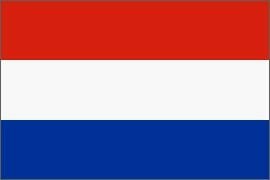The Dutch immigration authorities (IND) have announced new minimum salary levels for knowledge migrant workers (Highly Skilled Migrants), graduates and Blue Card applicants coming to the Netherlands.
These amounts are applicable for new applications for local hires, assignees (when outside the scope of the EU ICT Directive) or extension applications, received by IND on or after January 1, 2020.
Minimum Salaries for 2020
The new minimum gross monthly salary levels are as follows:
- Knowledge Migrants aged 30 and above: EUR 4612 (up from EUR 4500);
- Knowledge Migrants aged under 30: EUR 3381 (up from EUR 3299);
- Persons who have graduated from a higher Dutch educational institution, or from an international educational institution listed in the top 200 of one of the ranking lists, taking up employment within three years after graduation: EUR 2423 (up from EUR 2364);
- Blue Card Holders: EUR 5403 (up from EUR 5272).
- Note that amounts listed above do not include the mandatory holiday allowance.
- Payments must be made monthly, directly into the bank account of the foreign national, and the onus is on the employer to prove that such payments have been made and meet monthly requirements. Failure to be compliant with these rules may result in fines.
- Benefits and allowances may only be included if they are specified in the employment contract, fixed/guaranteed and paid monthly in money (not in kind).
- It should be noted that salaries must also meet the market salary rate for the specific position.
Our Advice
- Employers should note new minimum salary levels for 2020 and ensure that upcoming applications meet the new criteria.
- Employers who may be affected are encouraged to contact a Wolfsdorf Rosenthal immigration attorney or reach out to the WR Global Immigration team by emailing Global@Wolfsdorf.com for case specific advise.


